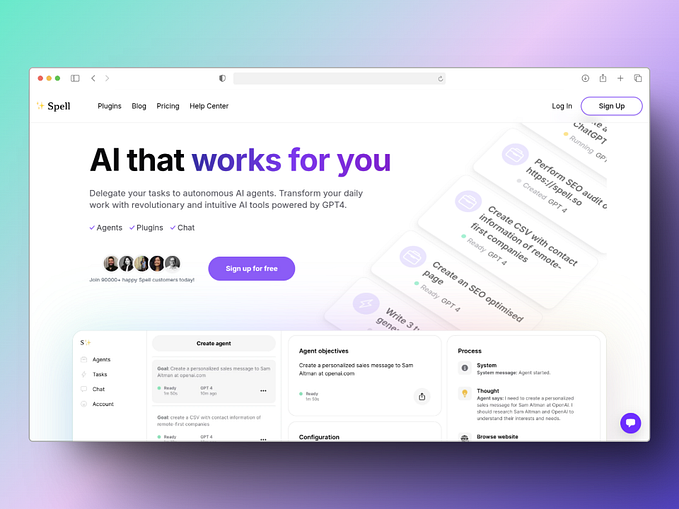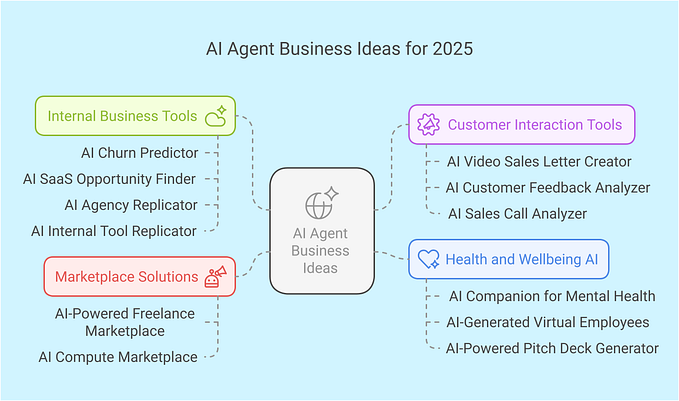An Accelerating AI Avalanche
How Google is pushing the AI Agenda
The Google I/O Conference keynote was a relentless stream of announcements that are far greater than the sum of their parts. Each individual revelation was impressive in isolation but, taken together, they represent a massive statement of intent from the world’s leading AI company. Years of investment in AI are coming to fruition at an astonishing pace. I don’t recall a keynote with so many announcements. Some will doubtless fail; many will fall short of the slick demonstrations once they make it into the real world. But make no mistake, most will soon come to be a part of everyday life for hundreds of millions of people.
Delivered against a backdrop of increasing concern about data privacy and the ethics of technology, Google tried very obviously to acknowledge its responsibilities whilst demonstrating its technological prowess and desire to push forward. The high tech demonstrations were interspersed with reminders of the socially good applications of AI, as well as the need for inclusion and education.
Simplicity
Much of what Google is aiming for involves saving your time by having one of its products do things for you: anticipating what you’re going to write in an email, improving your photos, identifying things you might want to buy, helping you find your way around a city, suggesting restaurants you and your friends might like, making appointments for you. These are an order of magnitude more difficult than the simple things Google has already got covered, like switching on and off the lights and heat in your home.
The rapid fire unveiling of examples did what most good technology should do — fade into the background while taking just a single click or voice command to achieve your goal. While many of the attendees will be impressed at the massive complexity being hidden from the user in simple one-touch commands, what Google has achieved in recent years across so many domains is daunting for anyone wishing to compete with them.
Assistant
The Google Assistant is now an ubiquitous part of the organisation’s strategy. Available to answer your questions and do your bidding across multiple applications and devices, updates announced included:
- New, more natural sounding voices
- Ability to have continuous conversations without having to say “Hey Google” again between connected queries

- Ability to complete multiple actions with a single command
- “Pretty Please” mode to encourage kids to ask for things politely
Some of these represent feature parity/catch-up with Amazon Alexa but also show signs of acceleration of Google’s emphasis on getting more done, and on much more natural interactions. Further demonstrations showed the assistant placing an order for a Starbuck’s coffee. But the technological star of the show was an experimental feature called Duplex.
Duplex

Designed to let the user delegate certain mundane tasks to their Assistant, Duplex will allow the Assistant to make phone calls and complete transactions on the user’s behalf. Starting with restaurant reservations and scheduling hair salon appointments, just provide the date and time, and your Assistant will handle the arrangement. If a business uses an online booking service, the Assistant will book through that. And if not, the Assistant will call the business on your behalf. Yep, with a good old phone call. Once your reservation or appointment is booked, the Assistant will then add a calendar reminder for your appointment and allow you to cancel if needed, again with just a request from you.
Google believes this technology will be helpful to the many small businesses that rely on phone calls to accept appointments today — they argue that their research shows that 60 percent of small businesses who don’t have an online booking system. And many people simply don’t reserve with businesses that don’t take online bookings. This may therefore be an important interim technology.
There has already been a somewhat divided response to this — some wowed by the technical ability, others worried about it being deceitful and portending an explosion of sophisticated nuisance robocallers. Is it an example of a tone-deaf silicon valley solving first world problems just because it’s cool? Sometimes it’s worth remembering that I/O is a developer conference and not everything on show is ready for primetime. It’s still early days for the technology, so let’s see what safeguards Google put in place.
As long as it stays limited to domains such as booking appointments, Duplex is surely little different than an executive having their PA make a reservation on their behalf. Perhaps for businesses who do not want to accept such reservations, there will be a mechanism to opt out of receiving these calls, much as they can prevent Google from indexing their web site today. For many commentators, the visibility of it being an AI entity conducting the call seems crucial. Is it fair that a business may not know it’s a computer making a reservation? Should the Assistant identify itself explicitly as an AI? The logical conclusion, though, is that more reservations will likely be completed without any human interaction — until everyone has an AI that makes and takes bookings without voice calls.
The Google Duplex technology is built to sound natural, to make the conversation experience comfortable. It’s important to us that users and businesses have a good experience with this service, and transparency is a key part of that. We want to be clear about the intent of the call so businesses understand the context. We’ll be experimenting with the right approach over the coming months. One of the key research insights was to constrain Duplex to closed domains, which are narrow enough to explore extensively. Duplex can only carry out natural conversations after being deeply trained in such domains. It cannot carry out general conversations.
More info on Duplex - https://ai.googleblog.com/2018/05/duplex-ai-system-for-natural-conversation.html
Duplex raises some important questions about how we want to use technology, and will inevitably expose differing levels of acceptance. Given how many of these scenarios lie ahead, it’s important to tackle these concerns now.
Lens
First unveiled at last year’s I/O, Lens is a visual search tool which has had a slow start. Initially only available on the small number of Google’s own Pixel devices, it finally seems ready for wider use and will now be available, along with these new abilities, on a wider range of phones:
- Real-world copy-paste: Google Lens’s new Smart Text Selection will allow users to highlight real-world text within Google Lens, and then copy that text to use on their phone. So you could point your phone at a sign and copy/paste the text from it.
- Smart Text search: When you highlight text in Google Lens, you can search that text with Google Assistant, for example point at a menu and get details of unfamiliar dishes.
- Style Match: Google Lens will be able to identify clothing or decor, and present reviews and shopping options — just point your camera, no need to take a photo.
- Real-time search: If you point your camera around your environment, Google Lens will instantly try to identify what it sees — whether it’s the type of plant or breed of a dog or reviews of a book from a cover or details of a concert from a poster. Lens won’t do facial recognition but that’s not to say it won’t become a topic of conversation soon.

Photos
With over half a billion users already, Google Photos is widely used to store and catalog photos. The latest updates will see AI automatically suggest improvements to photos — and you can apply the suggested edits with a single tap. For example, Google Photos will suggest to fix photos that are underexposed, to share them with the people in them and even to colorize black & white photos — each with just a single tap — no more “edit photo” work required.

Smart Compose in Gmail
The Smart Reply feature in Gmail is already a handy feature that suggests simple responses to emails, with three pre-canned responses:

Now, Smart Compose takes it a big step further by trying to actually help compose your email for you. To do so, it needs to guess the context of what you’re writing and to whom, and then offer predictions faster than you can type. From your greeting to your closing (and common phrases in between), Smart Compose suggests complete sentences in your emails. Smart Compose helps save you time, while reducing the chance of spelling and grammatical errors. It can even suggest relevant contextual phrases. For example, if it’s Friday it may suggest “Have a great weekend!” as a closing phrase.

Maps
Alongside Photos, Google Maps was another stalwart product to get some AI updates. Maps will now suggest places of interest nearby based on a score of how much it thinks you’ll like them. It also will soon boast a shortlist feature enabling you to send suggestions to friends and vote on which place you’d like to visit. No doubt it won’t be long before you’ll be able to have Duplex go ahead and make the reservation once your friends agree. The final update demonstrated for Maps is the rather impressive Augmented Reality mode for walking directions — where the way you need to walk is clearly displayed over-layed on the camera view — so no more guessing which way is south and seeing if the little blue dot moves the way you hope.
Waymo
Waymo, a sister company of Google, began life as the Google Self Driving Car project. Its CEO and CTO joined the keynote to talk about how Waymo is getting ready to launch a fully self driving public ride service this year. Waymo is a very clear example of how Google’s AI advances are not just powering smartphones. Waymo also showed how AI can help its sensors see “through” snow:

The Inexorable March
“There are very real and important questions being raised about the impact of these advances, and the role they will play in our lives. We know the path ahead needs to be navigated carefully and deliberately. We feel a deep sense of responsibility to get this right.”
Sundar Pichai, Google CEO
While referencing Google’s powerful new AI-dedicated chips for its data centres and their need for liquid cooling, he continued to turn up the heat on AI across Google. The conference was an AI tour-de-force where the hits just kept on coming. You get the sense that Google believe they have a competitive advantage with AI and are racing to maximise it. In presenting glimmers of the future, there was still an underlying tone of responsibility, which also extended to use of devices — if all this technology is too much for you, finally, Google will be offering controls to help you use your device less…you’ll soon have the ability to monitor time spent in each app, as well as a special mode to encourage you to go to sleep at night — Wind Down — which turns your screen monochrome at a specified time to make you put your phone away. If it seems strange that Google would add features to reduce your use of your phone, the cynical among us might point out that putting it away won’t stop the Google Assistant as it gains ever more abilities to work away in the background — on your behalf……

For more about Google’s focus on AI, visit: https://ai.google








